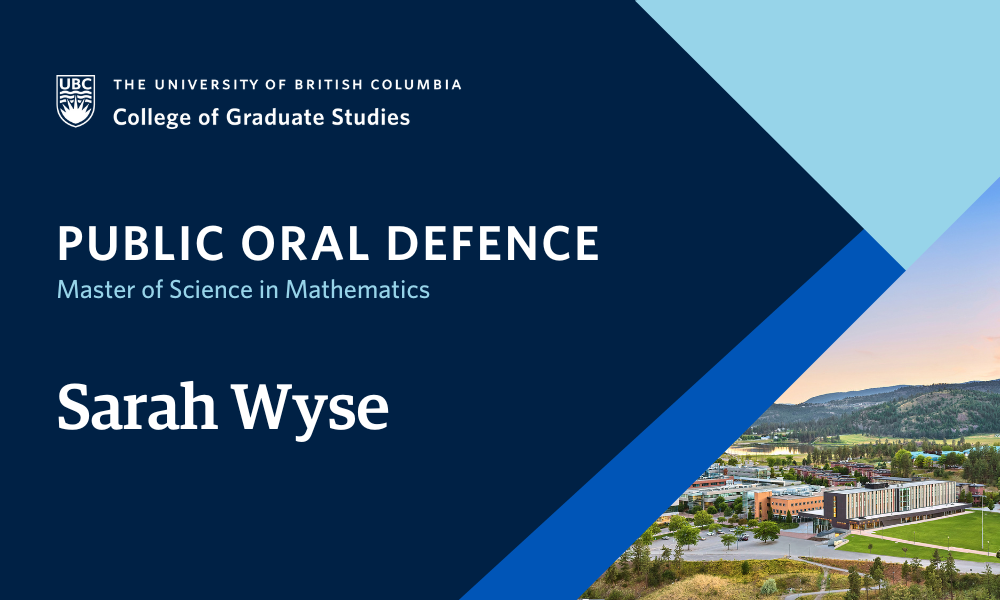
Thesis Defence: The Role of Committed Minorities in Climate Change Action: Qualitative Insights from a Social-Climate Model
May 22 at 1:30 pm - 5:30 pm

Sarah Wyse, supervised by Dr. Eric Foxall and Dr. Rebecca Tyson, will defend their thesis titled “The Role of Committed Minorities in Climate Change Action: Qualitative Insights from a Social-Climate Model” in partial fulfillment of the requirements for the degree of Master of Science in Mathematics.
An abstract for Sarah Wyse’s thesis is included below.
Defences are open to all members of the campus community as well as the general public. Registration is not required for in-person defences.
ABSTRACT
It is known that human activity is driving extreme weather patterns and extreme events impact climate change mitigation behaviour (Demski et al., 2016; IPCC, 2021). However, few models allow for human behaviours and the climate to dynamically interact. The models presented in this thesis are an initial step to filling this gap. These models contain three components: a social model, a climate model, and a means to connect the two into a social-climate model. First, I study a social model to determine the conditions under which a committed minority can influence the greater population and overturn a pre-established social convention. I formulate a new tool, opinion response functions, that analytically computes the steady states of my social model and allows for a study of the bifurcation structure as the committed minority size changes. I find that a committed minority and memory bank length play a vital role in causing a population to tip and shifting public opinion. Second, I modify an existing climate model to include climatic variability. With this very simple climate model, I obtain results that are comparable with more complex models. Lastly, I connect my social and climate models in a feedback loop. My results demonstrate that the social-climate feedback loop may be important in accurately predicting future temperatures, in contrast to the standard approach where human behaviour is considered fixed. Additionally, I find that a sufficient number of extreme events, occurring over a sufficiently short time span, is needed to shift the population into action (i.e., cause the social convention to be overturned through a tipping event) and the time at which the tipping event occurs has a large impact on future temperatures.